A flawed attempt to reinvent movie games.

Twenty years ago a new science fiction world was born, as relatable as it was outlandish. The Matrix was a rallying cry for anybody whose internet life had become more real to them than their daytime drudge; a freeing fiction that overlaid our own world like a sheet of graph paper and made sense of its unexplained repetitions and irregularities. As much as it was a nightmare or warning, it was also vicarious fantasy – it was pasty Keanu Reeves, asleep at his PC while Massive Attack plays in his headphones, clinging to the side of a building for dear life, eventually bending reality to his will. On some level, everybody watching wanted that call from Morpheus. To wake up, to know kung fu, to move like they do.
That’s what Enter The Matrix offered. Its title was a mission statement. Rather than mimic scenes from the movies, you could become a part of their story, interwoven with the green strands of its code.
It was born from a time when Hollywood was crowning a new wave of powerful directors, a younger generation to whom the artistry of videogames was self-evident. Peter Jackson recognised a fellow auteur in Michel Ancel, and tasked the Beyond Good & Evil designer with adapting King Kong. Guillermo Del Toro was losing himself in Ico, which he declared a masterpiece. And the Wachowskis, suddenly at the head of a multimedia empire, used their position to work with as many of their favourite artists as they could. They commissioned Neil Gaiman to write a comic; in Tokyo, Madhouse and Studio 4°C produced anime. For the interactive counterpart, they went to the developer behind a goofy sci-fishooter they’d been fond of in the ’90s – MDK.
HOLLYWOOD BOUND
Denne historien er fra October 2019-utgaven av PC Gamer.
Start din 7-dagers gratis prøveperiode på Magzter GOLD for å få tilgang til tusenvis av utvalgte premiumhistorier og 9000+ magasiner og aviser.
Allerede abonnent ? Logg på
Denne historien er fra October 2019-utgaven av PC Gamer.
Start din 7-dagers gratis prøveperiode på Magzter GOLD for å få tilgang til tusenvis av utvalgte premiumhistorier og 9000+ magasiner og aviser.
Allerede abonnent? Logg på

A New Dawn - The rise, fall and rise again of PC Gaming in Japan
The so-called 'Paso Kon' market (ie katakana's transliteration of 'Pasonaru Computa') in Japan was originally spearheaded in the 1980s by NEC's PC-8800 and, later, its PC-9800.
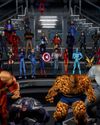
MARVEL: ULTIMATE ALLIANCE
Enter the multiverse of modness.

SLIDES RULE
Redeeming a hated puzzle mechanic with SLIDER
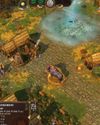
GODS AND MONSTERS
AGE OF MYTHOLOGY: RETOLD modernises a classic RTS with care

PHANTOM BLADE ZERO
Less Sekiro, more Wo Long: Fallen Dynasty

STARR-MAKING ROLE
Final Fantasy XVI's BEN STARR talks becoming a meme and dating summons
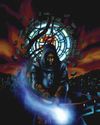
THIEF GOLD
Learning to forgive myself for knocking out every single guard.

HANDHELD GAMING PCs
In lieu of more powerful processors, handhelds are getting weirder
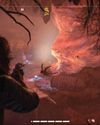
FAR FAR AWAY
STAR WARS OUTLAWS succeeds at the little things, but not much else shines
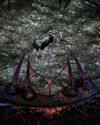
FINDING IMMORTALITY
Twenty-five years on, PLANESCAPE: TORMENT is still one of the most talked-about RPGs of all time. This is the story of how it was created as a ‘stay-busy’ project by a small team at Black Isle Studios